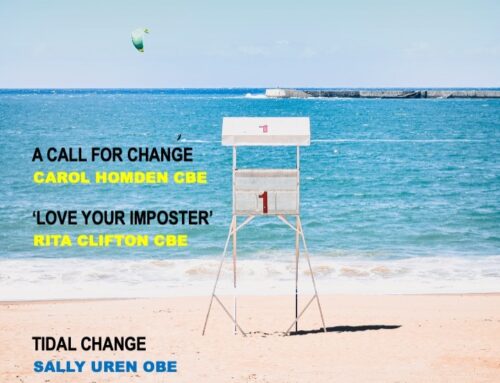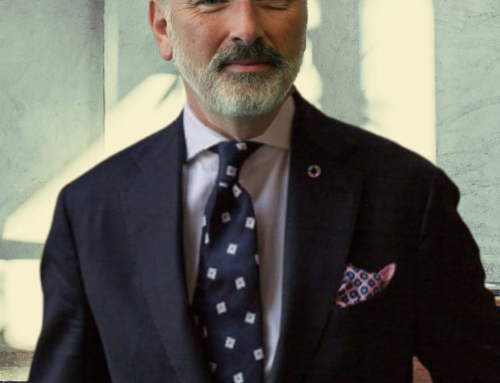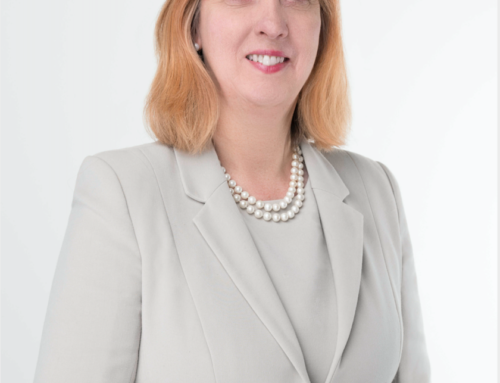The threat that changed my world

The fundamental flaws in our capitalist societies have been loud and clear for some time. Too few are listening, and even fewer are doing anything practical to address these flaws. Let’s start at the very top:
- The lion’s share of value creation within enterprise stays at the top. In 2019, Forbes magazine observed that the average CEO pay at an S&P 500 Index firm soared to 361 times more than that of the average rank-and-file worker.
- Corporations are designed to maximise shareholder returns. Given this, we see that alongside everything else, corporations are underinvesting in their workforce. Wherever possible, companies invest in automation if they see a higher return on capital. A 2017 McKinsey Global Institute report estimated that 400-800 million jobs could be lost due to automation in the near future.
- Pure capitalism has given birth to the gig economy, including Uber, Deliveroo, and hundreds more. Gig platforms position themselves as solutions for those that want independence, an alternative career choice, or just more flexibility. But let’s not kid ourselves: their business models are designed to exploit individuals. Gigsters face inconsistent and irregular income, burn out, exhaustion, and more. The real winners are the platforms, and their investors.
Unfortunately, societal inertia makes change difficult, especially when something that has worked well in the past is beginning to break down. But to counteract the fundamental flaws of capitalism, change, in a big way, and at a large scale, is now imperative.
This is where I come in.
The truth is, that in 2015, I was part of the problem. I started a corporation that was all about maximising shareholder value. I was on a mission and expanded sales into 60 countries. I was almost inured to all the inequality around me until I was held up at gunpoint in São Paulo, Brazil. I was in a cab, stuck in a traffic jam, when the young perpetrator, no older than 20 years, stopped on his motorbike and pointed a gun to my head. The transfer of my belongings took 10 seconds at most, but seemed to last much longer. I told my agent about the incident, but while he was upset and ashamed, I couldn’t stop seeing the fear in the perpetrator’s eyes. I realised that he must have been more scared than I was.
That incident was instrumental in shifting my view of the world. It led to many questions. Given that the perpetrator was so fearful, why did he put a gun to my head? How was he raised? What were his dreams as a young child? What were his living conditions like? Did he have any skills? Did he want to learn any skills? If so, how would he be able to? How would he be able to afford them? And how could he later find opportunities for those new skills?
This naturally led me down a road to understanding the opportunity landscape for all people, full stop. And what became obvious was that society is designed and run by the haves, and the bulk of society is simply used as tools to create capital. It should come as no surprise then, that there are record levels of anxiety amongst graduating students. And 85% of employees either are not engaged or are actively disengaged at work (Gallup), suggesting that employees don’t actively explore other options for fear of losing their existing income.
I realised that with more than 50% of the world’s population on smartphones and connected laptops, there must be a way of democratising opportunity in a way that also supports a symbiotic relationship between people and corporations.
Together with my co-founders, we took on this challenge, which led to the creation of Kalido (www.kalido.me). Kalido is an AI-for-good, privacy-first opportunity platform, that works 24/7 to find opportunities for users based on their skills and needs, in networks – either public or enterprise. Kalido facilitates real-time discovery, engagement, and collaboration within the enterprise. In addition, enterprise users can easily match people with available skills in other community networks on Kalido, whether that be a public freelance network or a university alumni network. As job tenure continues to drop, those that leave their enterprise can live in the Kalido freelance network for free and match with each other for services, and also match with many enterprises’ open job searches. It’s a symbiotic platform.
From the very beginning, our philosophy and economics have been straightforward. We do not advertise. We do not take any transaction fee. We do not labour broke. We operate on a SaaS model with enterprise and provide free matching to the public. We believe that everyone should have an opportunity engine that works for them.
Where do you come in?
Covid-19 has clearly exposed many of society’s weaknesses, not least the increasing precariousness of work. With unprecedented job losses, I am worried that those that can make a change may stand back. Let’s make sure that does not happen! If you do not know anyone that has lost their job or is in fear of losing their job, take a moment and imagine if it was you, or your parent, child, brother, or sister.
We are in a profound crisis, but the good news is that the more profound the crisis, the more significant the opportunity. Our opportunity is to: disrupt for good the status quo of the command and control structures of enterprises; disrupt the platform-winner-takes-all gig economy; and give people freedom and access to consistent and trusted opportunities regardless of their background, race, gender, skill set, income and location.
How do we achieve this?
The Kalido team has a dream. It is a bold dream. It is no less bold than the dream that Jack Ma and I discussed in 1999 about empowering SMEs, when I was the #3 core team member at Alibaba.
Over the past 5 years, we’ve built Kalido to democratise opportunity. We are confident that it will even if it takes many years to happen.
But the world needs help now, and this can only be realised through strong partnerships and cooperation. Now is a time for the leaders of corporations and states to partner together for the greater good. And it is NOT complicated. What is needed is a shared vision and urgency, the right technology to enable it, and finally the ability and willingness for corporations to come to the table and distribute this enabling technology to everyone, without economic strings attached.
We have an opportunity to democratise opportunity. Let’s do it.
Let’s aim at creating One Billion Smiles and make the world a better place
Sanjay Varma
Co-founder, Kalido
Email: [email protected]
LinkedIn: https://www.linkedin.com/in/svarma1/
Twitter: @varma94
Twitter: @getkalido


The threat that changed my world

The fundamental flaws in our capitalist societies have been loud and clear for some time. Too few are listening, and even fewer are doing anything practical to address these flaws. Let’s start at the very top:
- The lion’s share of value creation within enterprise stays at the top. In 2019, Forbes magazine observed that the average CEO pay at an S&P 500 Index firm soared to 361 times more than that of the average rank-and-file worker.
- Corporations are designed to maximise shareholder returns. Given this, we see that alongside everything else, corporations are underinvesting in their workforce. Wherever possible, companies invest in automation if they see a higher return on capital. A 2017 McKinsey Global Institute report estimated that 400-800 million jobs could be lost due to automation in the near future.
- Pure capitalism has given birth to the gig economy, including Uber, Deliveroo, and hundreds more. Gig platforms position themselves as solutions for those that want independence, an alternative career choice, or just more flexibility. But let’s not kid ourselves: their business models are designed to exploit individuals. Gigsters face inconsistent and irregular income, burn out, exhaustion, and more. The real winners are the platforms, and their investors.
Unfortunately, societal inertia makes change difficult, especially when something that has worked well in the past is beginning to break down. But to counteract the fundamental flaws of capitalism, change, in a big way, and at a large scale, is now imperative.
This is where I come in.
The truth is, that in 2015, I was part of the problem. I started a corporation that was all about maximising shareholder value. I was on a mission and expanded sales into 60 countries. I was almost inured to all the inequality around me until I was held up at gunpoint in São Paulo, Brazil. I was in a cab, stuck in a traffic jam, when the young perpetrator, no older than 20 years, stopped on his motorbike and pointed a gun to my head. The transfer of my belongings took 10 seconds at most, but seemed to last much longer. I told my agent about the incident, but while he was upset and ashamed, I couldn’t stop seeing the fear in the perpetrator’s eyes. I realised that he must have been more scared than I was.
That incident was instrumental in shifting my view of the world. It led to many questions. Given that the perpetrator was so fearful, why did he put a gun to my head? How was he raised? What were his dreams as a young child? What were his living conditions like? Did he have any skills? Did he want to learn any skills? If so, how would he be able to? How would he be able to afford them? And how could he later find opportunities for those new skills?
This naturally led me down a road to understanding the opportunity landscape for all people, full stop. And what became obvious was that society is designed and run by the haves, and the bulk of society is simply used as tools to create capital. It should come as no surprise then, that there are record levels of anxiety amongst graduating students. And 85% of employees either are not engaged or are actively disengaged at work (Gallup), suggesting that employees don’t actively explore other options for fear of losing their existing income.
I realised that with more than 50% of the world’s population on smartphones and connected laptops, there must be a way of democratising opportunity in a way that also supports a symbiotic relationship between people and corporations.
Together with my co-founders, we took on this challenge, which led to the creation of Kalido (www.kalido.me). Kalido is an AI-for-good, privacy-first opportunity platform, that works 24/7 to find opportunities for users based on their skills and needs, in networks – either public or enterprise. Kalido facilitates real-time discovery, engagement, and collaboration within the enterprise. In addition, enterprise users can easily match people with available skills in other community networks on Kalido, whether that be a public freelance network or a university alumni network. As job tenure continues to drop, those that leave their enterprise can live in the Kalido freelance network for free and match with each other for services, and also match with many enterprises’ open job searches. It’s a symbiotic platform.
From the very beginning, our philosophy and economics have been straightforward. We do not advertise. We do not take any transaction fee. We do not labour broke. We operate on a SaaS model with enterprise and provide free matching to the public. We believe that everyone should have an opportunity engine that works for them.
Where do you come in?
Covid-19 has clearly exposed many of society’s weaknesses, not least the increasing precariousness of work. With unprecedented job losses, I am worried that those that can make a change may stand back. Let’s make sure that does not happen! If you do not know anyone that has lost their job or is in fear of losing their job, take a moment and imagine if it was you, or your parent, child, brother, or sister.
We are in a profound crisis, but the good news is that the more profound the crisis, the more significant the opportunity. Our opportunity is to: disrupt for good the status quo of the command and control structures of enterprises; disrupt the platform-winner-takes-all gig economy; and give people freedom and access to consistent and trusted opportunities regardless of their background, race, gender, skill set, income and location.
How do we achieve this?
The Kalido team has a dream. It is a bold dream. It is no less bold than the dream that Jack Ma and I discussed in 1999 about empowering SMEs, when I was the #3 core team member at Alibaba.
Over the past 5 years, we’ve built Kalido to democratise opportunity. We are confident that it will even if it takes many years to happen.
But the world needs help now, and this can only be realised through strong partnerships and cooperation. Now is a time for the leaders of corporations and states to partner together for the greater good. And it is NOT complicated. What is needed is a shared vision and urgency, the right technology to enable it, and finally the ability and willingness for corporations to come to the table and distribute this enabling technology to everyone, without economic strings attached.
We have an opportunity to democratise opportunity. Let’s do it.
Let’s aim at creating One Billion Smiles and make the world a better place
Sanjay Varma
Co-founder, Kalido
Email: [email protected]
LinkedIn: https://www.linkedin.com/in/svarma1/
Twitter: @varma94
Twitter: @getkalido





